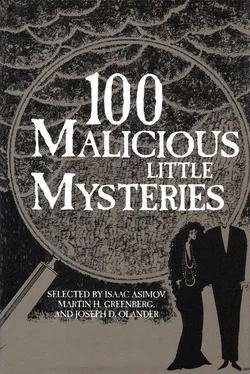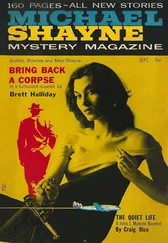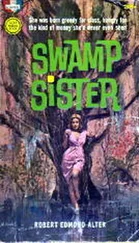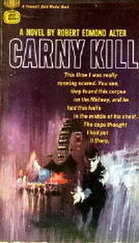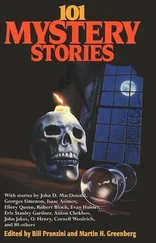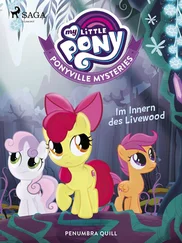He come to that same idea, and as soon as he did he flung himself off the car with his arms spread out and his hair and coattails flying in the slipstream. I saw him land solid and go down and roll over once. Then he knelt there, shaking his head a little, looking around.
Well, he was the first floater we’d seen in seven months. The yard crews seal up the cars nowadays and they ain’t many ride the rails anyhow, even down in our part of the country. But every now and then a floater wants to ride bad enough to break a seal, or hides himself in a gondola or on a loaded flat. Kids, oldtime hoboes, wanted men. They’s still a few.
And some of ’em get off right down where this one had, because they know the St. Louis freight stops in Sabreville and they’s yardmen there that check the string, or because they see the run-down shacks of the old hobo jungle or Ferdie Johnson’s melon patch. Man rides a freight long enough, no provisions, he gets mighty hungry. The sight of a melon patch like Ferdie’s is plenty enough to make him jump off.
“Billy Bob,” I said.
“Yes, Granpa. You wait easy now.”
He went off along the slope, running. I watched the floater, and he come up on his feet and got himself into a clump of bushes alongside the tracks to wait for the caboose to pass so’s he wouldn’t be seen. Pretty soon the last of the cars left the tunnel, and then the caboose with a signalman holding a red-eye lantern out on the platform. When she was down the tracks and just about beyond my sight, the floater showed himself again and had him another look around. Then, sure enough, he made straight for the melon patch.
Once he got into it I couldn’t see him because he was in close to the woods at the edge of the slope. I couldn’t see Billy Bob neither. The whistle sounded one final time, mournful, as the lights of the caboose disappeared, and a chill come to my neck and set there like a cold dead hand. I closed my eyes and listened to the last singing of the wheels fade away.
It weren’t long before I heard footfalls on the slope coming near, then the angry sound of a stranger’s voice, but I kept my eyes shut until they walked up close and Billy Bob said, “Granpa.” When I opened ’em the floater was standing three feet in front of me, white face shining — scared face, angry face, evil face.
“What the hell is this?” he said. “What you want with me?”
“Give me your gun, Billy Bob,” I said.
He did it, and I held her tight and lifted the barrel. The ache in my stomach was so strong my knees felt weak and I could scarcely breathe. But my hand was steady.
The floater’s eyes come wide-open and he backed off a step. “Hey,” he said, “hey, you can’t—”
I shot him twice.
He fell over and rolled some and come up on his back. They wasn’t no doubt he was dead, so I give the gun back to Billy Bob and he put it away in his belt. “All right, boy,” I said.
Billy Bob nodded and went over and hoisted the dead floater onto his shoulder. I watched him trudge off towards the bog hollow, and in my mind I could hear the train whistle as she’d sounded from inside the tunnel. I thought again, as I had so many times, that it was the way my boy Rufus and Billy Bob’s ma must have sounded that night in 1947, when the two floaters from the hobo jungle broke into their home and raped her and shot Rufus to death. She lived just long enough to tell us about the floaters, but they was never caught. So it was up to me, and then up to me and Billy Bob when he come of age.
Well, it ain’t like it once was and that saddens me. But they’s still a few that ride the rails, still a few take it into their heads to jump off down there when the St. Louis freight slows coming through the Chigger Mountain tunnel.
Oh my yes, they’ll always be a few for me and Billy Bob and the sweet fever inside us both.
The Magnum
by Jack Ritchie
Amos Weatherlee clutched a magnum of champagne in one hand and a hammer in the other.
He paused in the wide doorway of the hotel bar.
At this hour of the afternoon, the barroom was nearly empty except for the three women in one booth with Pink Ladies and a middle-aged man alone in another.
Weatherlee approached him and extended the hammer. “Pardon me, but I would regard it as an extreme favor if you would smash my bottle.”
Harry Sloan studied him warily. “Don’t you think that would make quite a mess?”
Weatherlee’s silver-gray hair was somewhat disheveled and he spoke with a slight slur. “I never thought of that. You don’t suppose that the bartender has a basin or something like that we could use?”
Sloan sipped his whiskey and soda. “If you’re really set on smashing that bottle, why don’t you do it yourself?”
Weatherlee sighed. “I tried. I really tried. Captain O’Reilly did too. So did Carruthers and Larson and Cooper and I don’t know how many more. It was quite a wild night.”
“What was?”
“Our club meeting a year ago.”
Sloan’s attention was distracted by the procession of a dozen elderly men filing through the hotel entrance. At least half of them walked with canes. They moved slowly across the lobby toward the open doors of a private dining room.
Sloan showed some interest. “Who in the world are they?”
“Our club,” Weatherlee said. “It’s our annual reunion. The members just finished a sight-seeing bus tour of the city and now we’re going to have dinner.” He watched as the group entered the dining room. “We were all members of the same National Guard Company. We formed the club right after the war.”
“World War I?”
“No,” Weatherlee said. “The Spanish-American War.”
Sloan regarded him skeptically.
“That’s Captain O’Reilly,” Weatherlee said. “Wearing the broad-brimmed campaign hat.” He sat down. “How old do you think I am?”
“I haven’t the faintest idea.”
“Ninety,” Weatherlee said proudly. “I was eighteen when I enlisted.”
“Sure,” Sloan said. “And I suppose you were a member of Teddy Roosevelt’s Rough Riders and charged up San Juan Hill?”
“No. Actually our outfit never got beyond Tampa before the war ended. Our only casualties were to yellow fever.”
“You look pretty spry for ninety.”
“I am,” Weatherlee said firmly. “I take a brisk half-hour walk every day and I’m still in full possession of all my faculties. In full possession.”
“Sure,” Sloan said. “Sure.”
“Of course we weren’t all the same age when we formed the club. Captain O’Reilly, for instance, our oldest man, was thirty-six. Twice as old as I at the time. He joined the club more in the spirit of good-fellowship, rather than really expecting to drink the bottle.”
Sloan eyed the magnum of champagne. “What kind of a club was this?”
“A Last Man club. Perhaps you’ve heard of them? We founded ours in 1898. Right after the war ended and we were waiting to get shipped home. We wanted one hundred members, but actually we could get only ninety-eight to sign up.”
“And those are the survivors? What’s left?”
“Oh, no. Those are only the members who could make it. The others are in hospitals, old age homes, and the like.”
Sloan did some mental arithmetic. “You said that Captain O’Reilly was thirty-six when the club formed in 1898?”
“Yes.”
“Are you telling me that Captain O’Reilly is now one hundred and eight years old?”
“That’s right. Our oldest man.”
“And at ninety, you’re the youngest?”
“Yes,” Weatherlee said. “And I’m Custodian of the Bottle. According to our by-laws, the youngest surviving member is Custodian of the Bottle.”
Читать дальше
